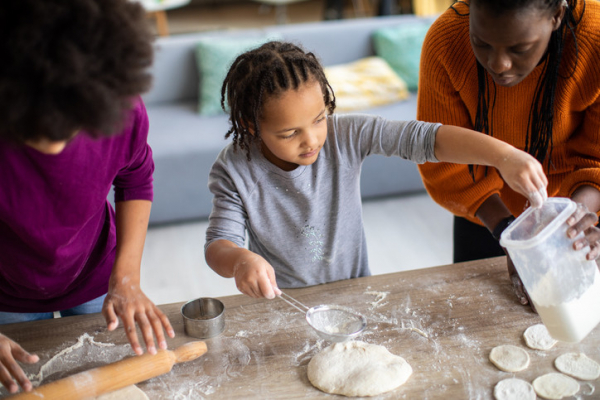
Vaccination against the virus that causes COVID-19 is the most important lifesaving tool we have in this pandemic. Fortunately, the vaccines authorized in the US have proven remarkably safe and effective. And we’ve known from the start that the strong protection they provide would likely wane over time.
But has protection declined enough to warrant booster shots? Studies published in the last few months by researchers in the UK, Israel, and the US (reviewed here and here) raised this possibility, and Israel and the UK have already started ambitious booster programs.
First things first: Vaccinate everyone
In the US, the CDC and FDA have reviewed the necessity, safety, and effectiveness of boosters for the Pfizer/BioNTech, Moderna, and Johnson & Johnson vaccines. I’ll discuss these recommendations in a moment.
But first, it’s important not to overlook this fact: vaccinating the unvaccinated should be a much bigger priority than giving booster shots to those who’ve received vaccines. That goes for people in the US who have been unable or unwilling to get the vaccine, and people in places throughout the world with limited access to vaccines.
Broadening the pool of people with initial vaccinations would not only save more lives than promoting boosters, but would also reduce COVID-related healthcare disparities between richer and poorer countries. That’s why the World Health Organization (WHO) called for a moratorium on booster doses. Meanwhile, the Biden administration has announced a promise to donate another half billion vaccines to countries with low vaccination rates, bringing the total US commitment to donate 1.1 billion doses. The administration emphasizes that starting a booster program in the US and helping other countries get their citizens vaccinated are not mutually exclusive.
Is there a difference between a booster dose and a third shot?
It’s not trick wording: not all extra vaccine doses are boosters. In August 2021, the FDA approved a third dose of the Pfizer or Moderna vaccine for people who are immunocompromised. This includes people who have HIV and those receiving treatment for cancer that suppresses the immune system. For them, the extra dose is not a booster; it’s considered part of their initial immunization series.
Getting the timing and dose right on vaccine boosters
Ideally, vaccine boosters are given no sooner than necessary, but well before widespread protective immunity declines. The risks of waiting too long are obvious: as immunity wanes, the rates of infection, serious illness, and death may begin to rise.
But there are downsides to providing boosters too early:
- Side effects might be more common. While studies published to date suggest that boosters are safe, we don’t yet have long-term data.
- The benefit may be small. It may be better to wait on boosters if most people are still well-protected by their initial vaccinations.
- Current boosters may not cover future variants. If new variants of concern emerge in the coming months, boosters may be modified to cover them.
- Waiting longer before a booster might lead to a stronger immune response. As noted by Dr. Anthony Fauci recently: “If you allow the immune response to mature over a period of a few months, you get much more of a bang out of the shot.”
The recommended dose for the Pfizer/BioNTech booster and Johnson & Johnson booster is the same as the initial dose. For the Moderna booster it’s a half-dose, which may reduce the risk of side effects and increase the number of doses available to others.
Recommendations for vaccine boosters
For the Pfizer/BioNTech and Moderna vaccines, a booster is recommended at least six months after the second dose for those who are
- 65 or older
- 18 to 64 and at high risk for severe illness from COVID, such as people with chronic lung disease, cancer, or diabetes
- living or working in a high-exposure setting, such as residents of long-term care facilities, healthcare workers, teachers and day care staff, grocery workers, and prisoners.
No Pfizer/BioNTech and Moderna boosters are recommended for the general population yet. That’s because the initial doses still appear to be providing good protection against severe illness and death for those at lower risk of severe COVID-related illness.
For the Johnson & Johnson vaccine, a booster is recommended for everyone 18 or older two or more months after the first dose.
Mixing or matching booster shots
The FDA and the CDC have concluded that mixing or matching vaccines when getting a booster dose is safe and effective. Regardless of the initial vaccine you received, any of the three available vaccines may be given as a booster.
Plenty of unknowns
The release of these new recommendations for vaccine boosters raises a number of questions:
- How convincing is the safety data? Reports to date suggest boosters are safe, but we need more research and real-world data.
- Will the boosters be modified to protect against emerging variants of concern?
- Will additional boosters be needed in the future? If so, how often?
There are important gaps in our knowledge of how well vaccine boosters work. We need larger and longer-term studies involving a broad range of participants representing all races and ethnicities and people with compromised immune systems. Look for further information in coming months.
What’s next?
You can expect the FDA and CDC to expand booster recommendations based on continued review and analysis of ongoing research. In the meantime, we should redouble our efforts to vaccinate people who haven’t yet received vaccines. Boosters can play an important role in protecting individuals. But, as CDC director Dr. Rochelle Wallensky notes, “we will not boost our way out of this pandemic.”


